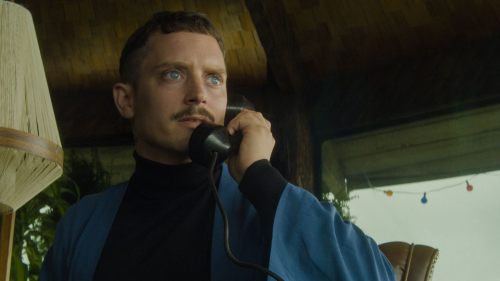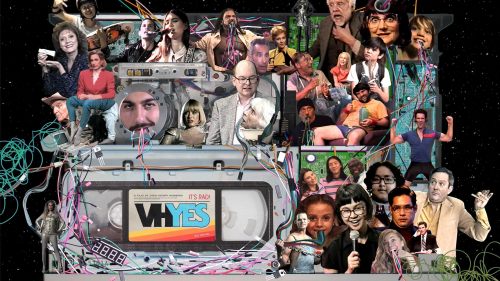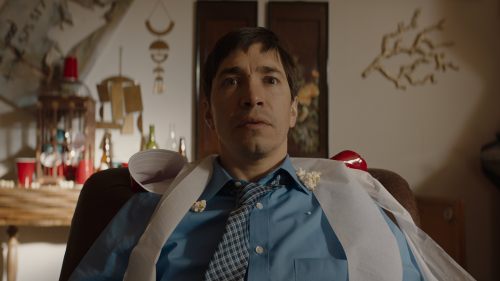Fantastic Fest Review: WRINKLES THE CLOWN Will Teach You A Lesson In Modern Mythmaking
In Southwest Florida, a man in his sixties, face out of frame and voice disguised by a gruff fake accent, tells a documentary crew about who he is. He needs to keep his real identity hidden from the world if he is going to continue doing the work that he does. It doesn’t pay much; he lives out of his mobile home and, though he’s achieved a level of infamy that gets him hundreds of thousands of calls, he doesn’t actually get many solicitations for real work. However, if he puts on a mask and jumpsuit, Floridians will know the man on sight, as that visage has been plastered all over the state and on YouTube with a phone number and an infamous name: Wrinkles the Clown.
In Wrinkles the Clown, documentarian Michael Beach Nichols wastes no time delving into the psychology, mythos, and cultural impact of a man who sells himself as a service to parents to scare unruly and disobedient children. This almost immediately raises questions of whether using the threat of a traumatizing clown is itself a form a child abuse, or if Wrinkles’ so-called “behavioral scares” are an effective parenting technique without lasting harm to the child. Nichols is careful to acknowledge the realities of child abuse without minimizing them, even though that ultimately isn’t what his film is about. Wrinkles the Clown never deigns to make a moral judgment on the threatening nature of his persona. However, the terror and apparent trauma that Wrinkles delivers upon his individual victims is balanced by the children who have achieved some level of inspiration from the man, exploring ideas of horror and comedy to create their own forms of clown-based performance and art. Wrinkles is not incapable of bringing some good into the world.
This is all contextualized with a rather fascinating look into the history of folklore, the American evolution of the clown as a figure of hilarity and terror, and the impact that clowns have had on the zeitgeist, from the movies we love to the real-life clown terrorism that swept the nation in 2016. Though sometimes the film seems to be going off on a tangent that is maybe one step removed from its fascinating central figure, Nichols pulls off a remarkably clever trick of editing that uses all this disparate knowledge to recontextualize Wrinkles in the film’s latter half, elevating Wrinkles the Clown from a curious character study to a demonstrative treatise on modern communal storytelling.
For as cool as all that is, Wrinkles the Clown is not a documentary that’s going to radically transform anyone’s world. Aside from that aforementioned twist, Wrinkles the Clown is about as basic as documentaries get, focusing on talking heads to flesh out footage of its subject and barely reaching feature-length at a scant 78 minutes. One probably couldn’t get much more from this premise without radically changing the film’s core conceit, so by placing the focus on a mythic curiosity, so too does the film remain just that: a curiosity. But it’s absolutely worth it to spend a little time with the mind of a man who scares children for a living, if only to gain a better understanding of why we collectively mythologize a man in a mask.



